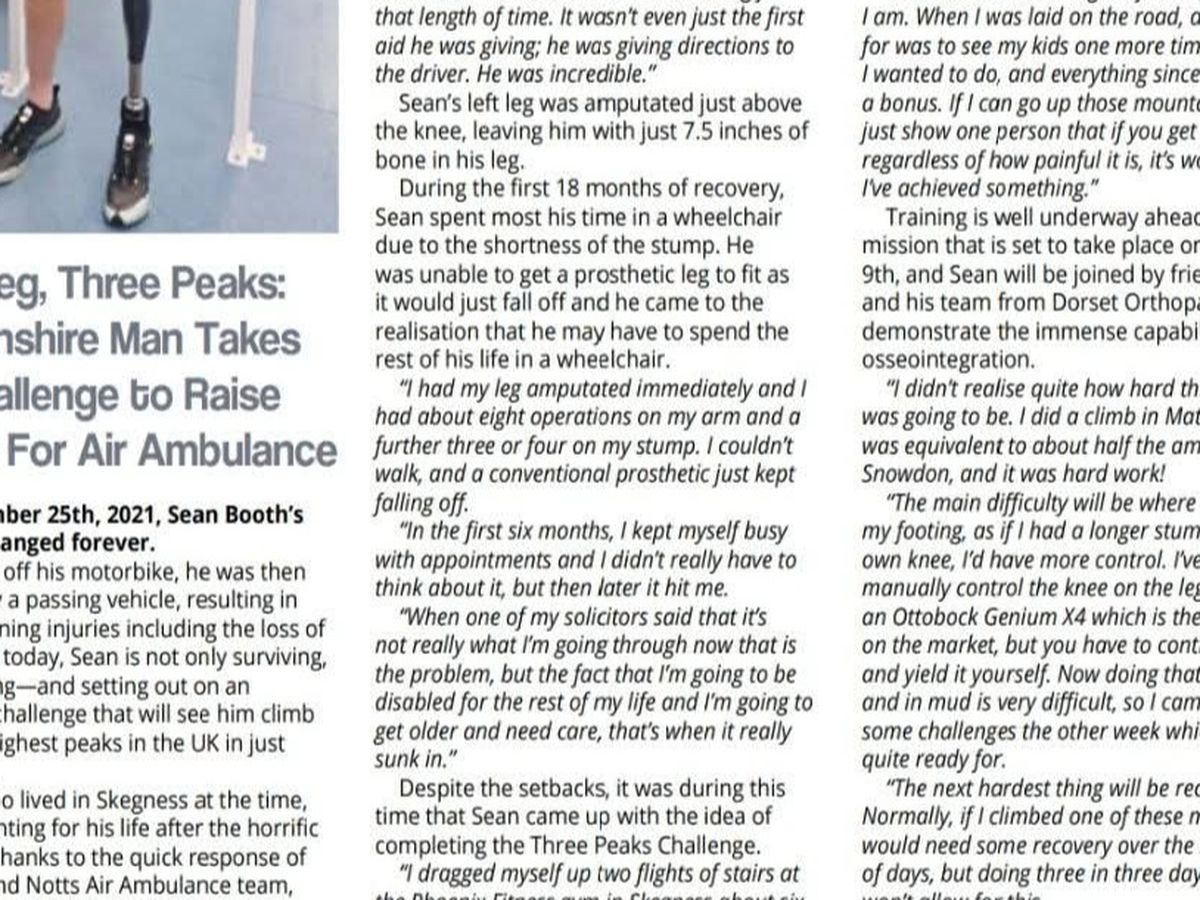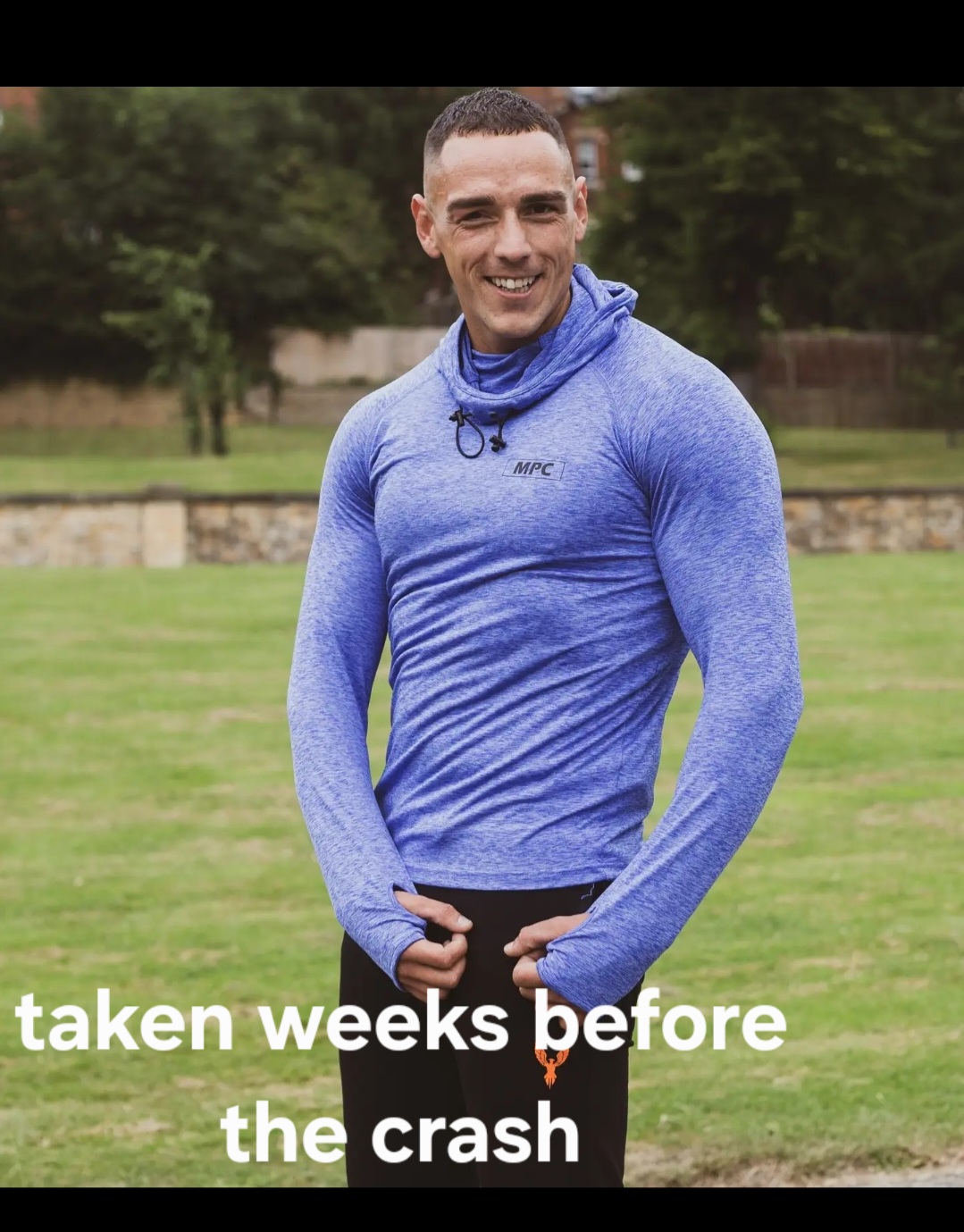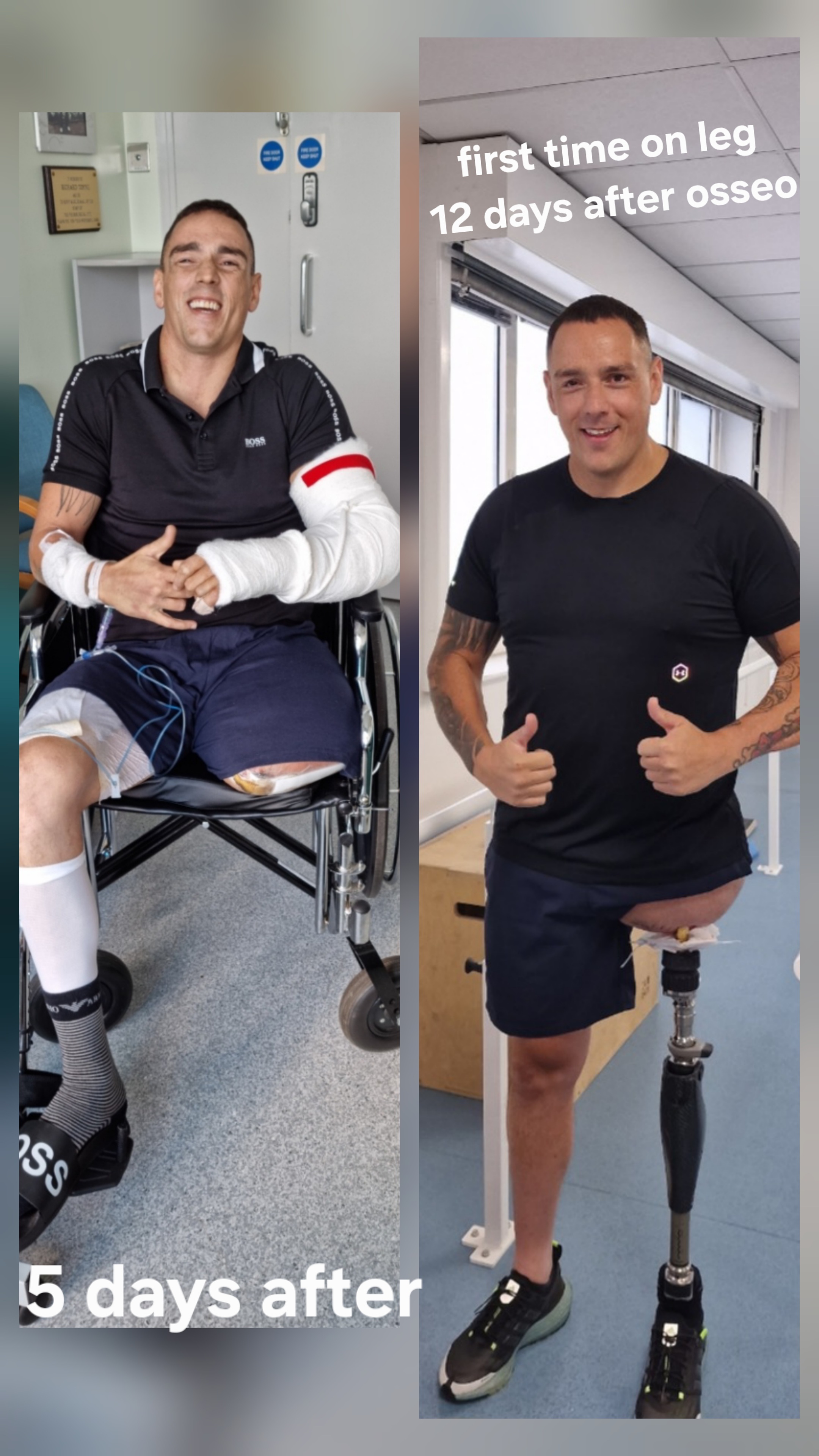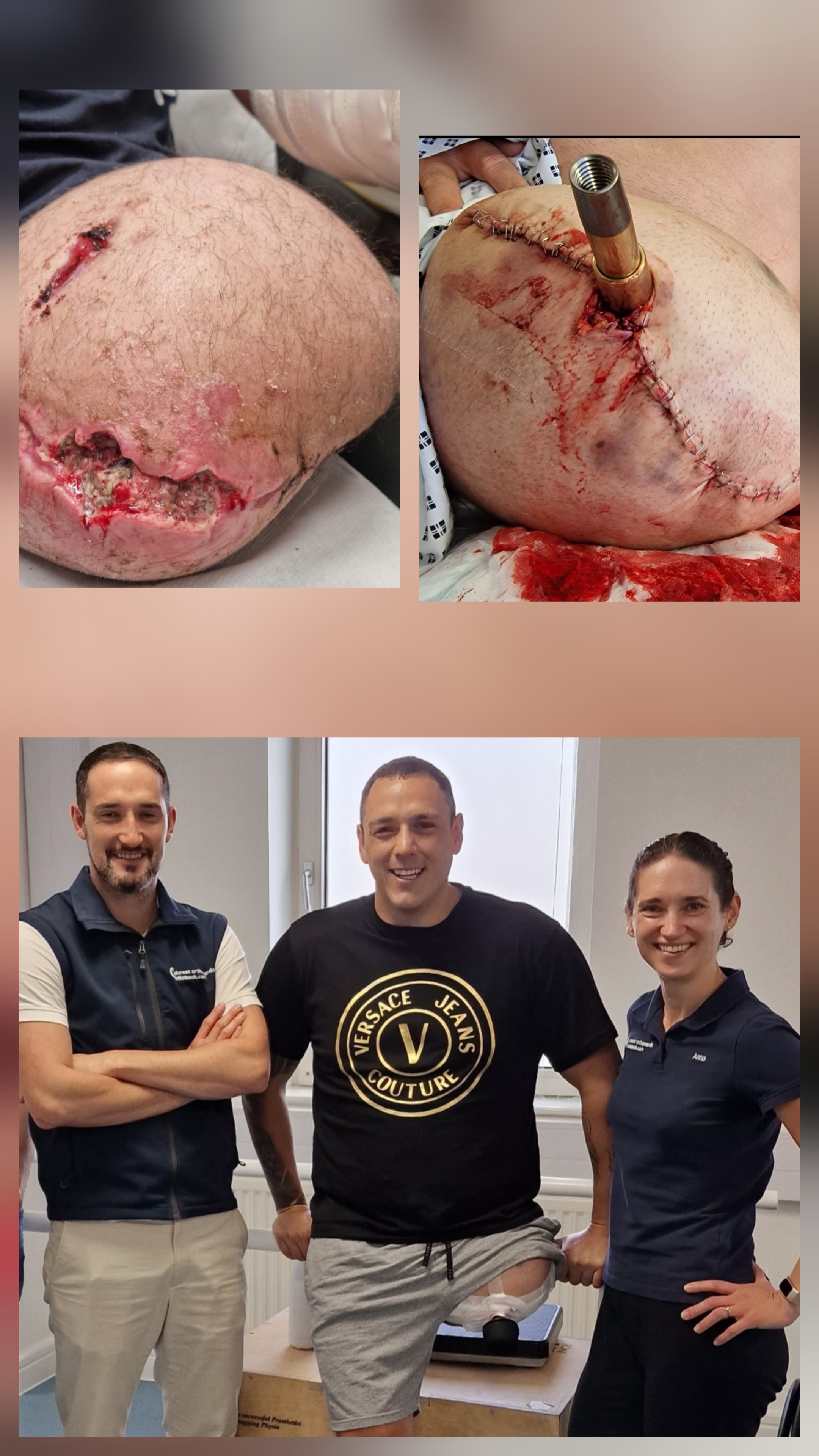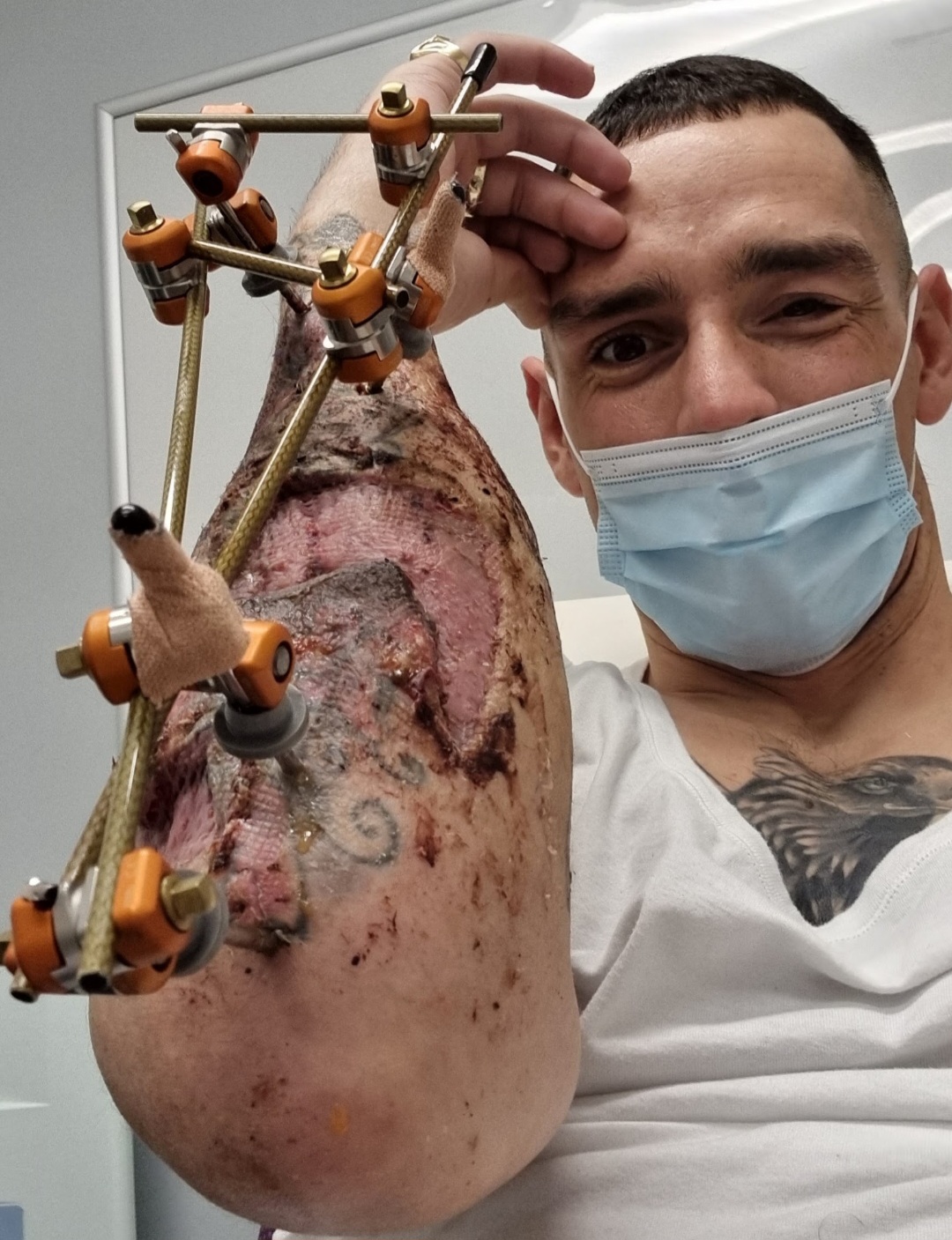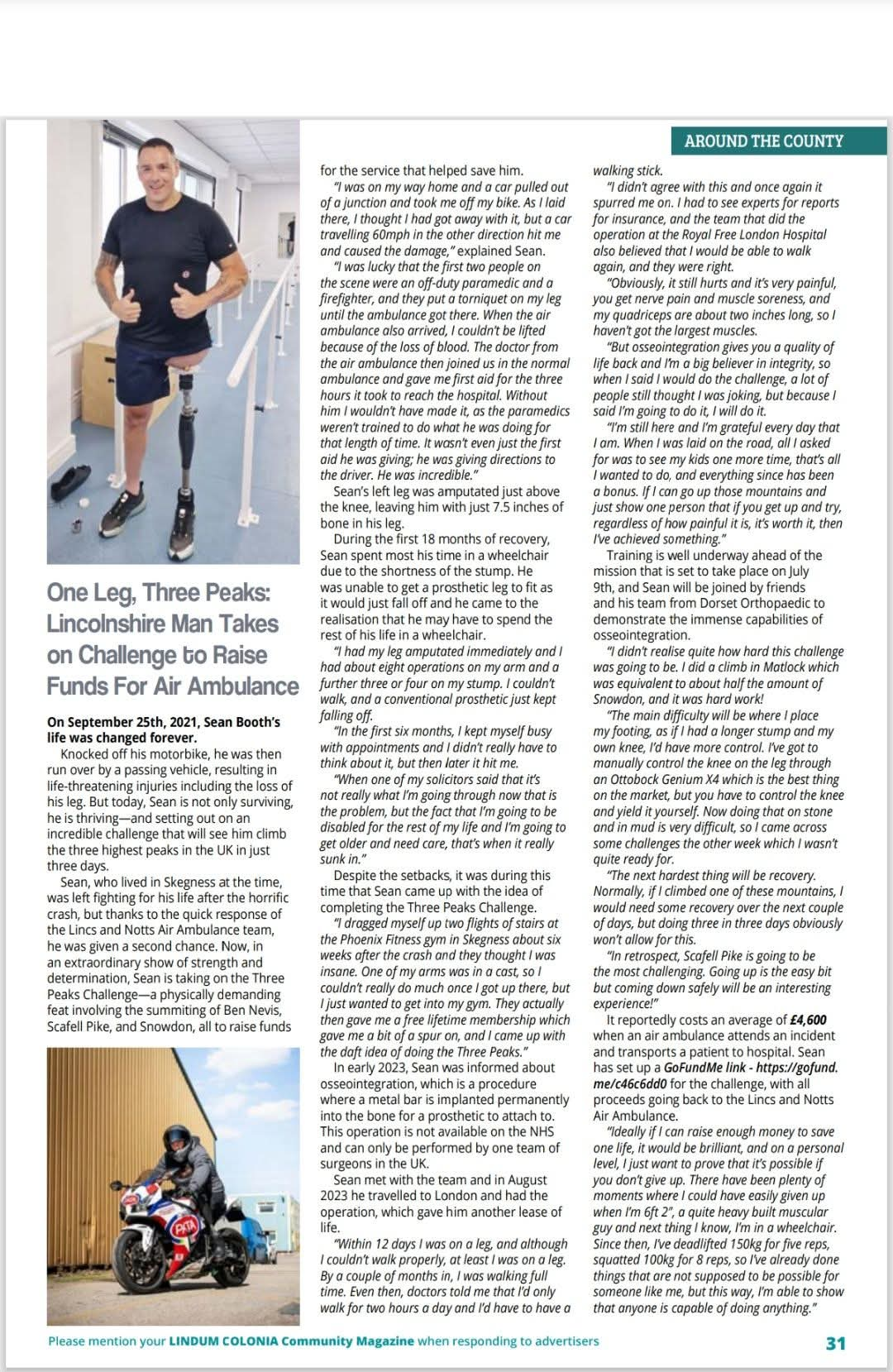- A
- R
One Leg, Three Peaks: Lincolnshire Man Takes on Challenge to Raise Funds Air Ambulance
On September 25th, 2021, Sean Booth’s life was changed forever.
Knocked off his motorbike, he was then run over by a passing vehicle, resulting in life-threatening injuries including the loss of his leg. But today, Sean is not only surviving, he is thriving—and setting out on an incredible challenge that will see him climb the three highest peaks in the UK in just three days.
Sean, who lived in Skegness at the time, was left fighting for his life after the horrific crash, but thanks to the quick response of the Lincs and Notts Air Ambulance team, he was given a second chance. Now, in an extraordinary show of strength and determination, Sean is taking on the Three Peaks Challenge—a physically demanding feat involving the summiting of Ben Nevis, Scafell Pike, and Snowdon, all to raise funds for the service that helped save him.
“I was on my way home and a car pulled out of a junction and took me off my bike. As I laid there, I thought I had got away with it, but a car travelling 60mph in the other direction hit me and caused the damage,” explained Sean.
“I was lucky that the first two people on the scene were an off-duty paramedic and a firefighter, and they put a torniquet on my leg until the ambulance got there. When the air ambulance also arrived, I couldn’t be lifted because of the loss of blood. The doctor from the air ambulance then joined us in the normal ambulance and gave me first aid for the three hours it took to reach the hospital. Without him I wouldn’t have made it, as the paramedics weren’t trained to do what he was doing for that length of time. It wasn’t even just the first aid he was giving; he was giving directions to the driver. He was incredible.”
Sean’s left leg was amputated just above the knee, leaving him with just 7.5 inches of bone in his leg.
During the first 18 months of recovery, Sean spent most his time in a wheelchair due to the shortness of the stump. He was unable to get a prosthetic leg to fit as it would just fall off and he came to the realisation that he may have to spend the rest of his life in a wheelchair.
“I had my leg amputated immediately and I had about eight operations on my arm and a further three or four on my stump. I couldn’t walk, and a conventional prosthetic just kept falling off.
“In the first six months, I kept myself busy with appointments and I didn’t really have to think about it, but then later it hit me.
“When one of my solicitors said that it’s not really what I’m going through now that is the problem, but the fact that I’m going to be disabled for the rest of my life and I’m going to get older and need care, that’s when it really sunk in.”
Despite the setbacks, it was during this time that Sean came up with the idea of completing the Three Peaks Challenge.
“I dragged myself up two flights of stairs at the Phoenix Fitness gym in Skegness about six weeks after the crash and they thought I was insane. One of my arms was in a cast, so I couldn’t really do much once I got up there, but I just wanted to get into my gym. They actually then gave me a free lifetime membership which gave me a bit of a spur on, and I came up with the daft idea of doing the Three Peaks.”
In early 2023, Sean was informed about osseointegration, which is a procedure where a metal bar is implanted permanently into the bone for a prosthetic to attach to. This operation is not available on the NHS and can only be performed by one team of surgeons in the UK.
Sean met with the team and in August 2023 he travelled to London and had the operation, which gave him another lease of life.
“Within 12 days I was on a leg, and although I couldn’t walk properly, at least I was on a leg. By a couple of months in, I was walking full time. Even then, doctors told me that I’d only walk for two hours a day and I’d have to have a walking stick.
“I didn’t agree with this and once again it spurred me on. I had to see experts for reports for insurance, and the team that did the operation at the Royal Free London hospital also believed that I would be able to walk again, and they were right.
“Obviously, it still hurts and it’s very painful, you get nerve pain and muscle soreness, and my quadriceps are about two inches long, so I haven’t got the largest muscles.
“But osseointegration gives you a quality of life back and I’m a big believer in integrity, so when I said I would do the challenge, a lot of people still thought I was joking, but because I said I’m going to do it, I will do it.
“I’m still here and I’m grateful every day that I am. When I was laid on the road, all I asked for was to see my kids one more time, that’s all I wanted to do, and everything since has been a bonus. If I can go up those mountains and just show one person that if you get up and try, regardless of how painful it is, it’s worth it, then I’ve achieved something.”
Training is well underway ahead of the mission that is set to take place on July 9th, and Sean will be joined by friends and his team from Dorset Orthopaedic to demonstrate the immense capabilities of osseointegration.
“I didn’t realise quite how hard this challenge was going to be. I did a climb in Matlock which was equivalent to about half the amount of Snowdon, and it was hard work!
“The main difficulty will be where I place my footing, as if I had a longer stump and my own knee, I’d have more control. I’ve got to manually control the knee on the leg through an Ottobock Genium X4 which is the best thing on the market, but you have to control the knee and yield it yourself. Now doing that on stone and in mud is very difficult, so I came across some challenges the other week which I wasn’t quite ready for.
“The next hardest thing will be recovery. Normally, if I climbed one of these mountains, I would need some recovery over the next couple of days, but doing three in three days obviously won’t allow for this.
“In retrospect, Scafell Pike is going to be the most challenging. Going up is the easy bit but coming down safely will be an interesting experience!”
It reportedly costs an average of £4600 when an air ambulance attends an incident and transports a patient to hospital. Sean has set up a GoFundMe link (https://gofund.me/c46c6dd0) for the challenge, with all proceeds going back to the Lincs and Notts Air Ambulance.
“Ideally if I can raise enough money to save one life, it would be brilliant, and on a personal level, I just want to prove that it’s possible if you don’t give up. There have been plenty of moments where I could have easily given up when I’m 6ft 2”, a quite heavy built muscular guy and next thing I know, I’m in a wheelchair. Since then, I’ve deadlifted 150kg for five reps, squatted 100kg for 8 reps, so I’ve already done things that are not supposed to be possible for someone like me, but this way, I’m able to show that anyone is capable of doing anything.”
Organizer
The Lincolnshire & Nottinghamshire Air Ambulance Charitable Trust
Beneficiary
